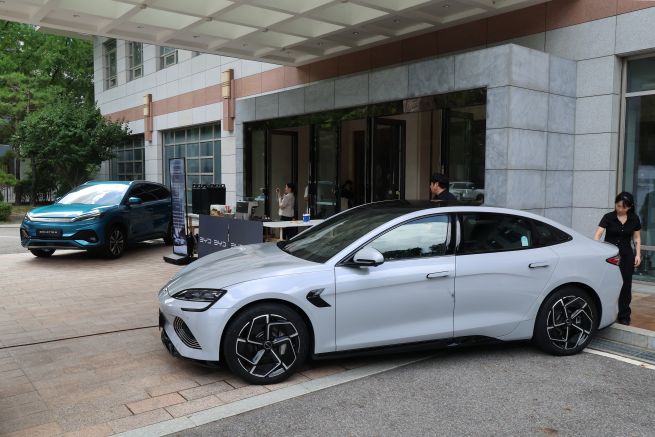SEOUL, Sept. 3 (Korea Bizwire) — BYD’s debut passenger model in South Korea, the Atto 3, has received a disappointing safety rating in the nation’s official crash and safety assessments, dealing a setback to the Chinese automaker as it seeks to expand in one of the world’s most competitive car markets.
The Korea Transportation Safety Authority announced Wednesday that the Atto 3 earned an overall grade of four out of five in the Korea New Car Assessment Program (KNCAP) for small sport utility vehicles. The program assigns an overall grade based on the lowest score across three categories: crash safety, pedestrian protection, and accident-prevention technology.
While the Atto 3 was rated highly for crash protection (four stars) and pedestrian safety (five stars), it scored just two stars in accident-prevention systems. Regulators cited the absence of critical features such as emergency steering assist, pedal-misoperation prevention, and vehicle-to-everything (V2X) communication, and flagged shortcomings in its lane-keeping assistance.
By comparison, BMW’s iX2 — evaluated in the same class — received an overall grade of two, with four stars in crash safety and accident prevention, and five stars in pedestrian safety. In separate assessments of electric vehicle safety, the Atto 3 scored three stars, while the iX2 scored two.
Officials said more results across mid-size SUVs and pickup trucks will follow later this year. “We are evaluating pure electric, hydrogen-electric, hybrid, and internal-combustion vehicles to meet consumer demand for diverse safety data,” said Jung Yong-sik, a director at the authority.
The Atto 3’s rating underscores both the progress and the challenges facing BYD, which has quickly risen as a global electric-vehicle powerhouse but faces close scrutiny as it pushes into the Korean market long dominated by Hyundai, Kia, and European brands.
Kevin Lee (kevinlee@koreabizwire.com)

